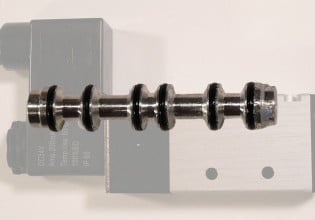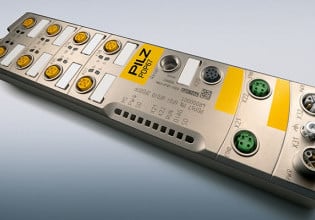NIST Awards Several Universities With Critical Funding to Develop Curriculum in Manufacturing and Automation
NIST awards funding to five universities to create educational content on standards for industrial manufacturing, robotic applications, engineering, and IIoT tools.
The U.S. Department of Commerce’s National Institute of Standards and Technology (NIST) recently announced five awards to educational communities seeking to develop standards education in undergraduate and graduate-level curricula. The total value of the educational awards amounts to approximately $373,000.
Awardees
A previous article mentioned one example of an industry leader providing educational resources to help key skills to the next generation of automated manufacturing engineers. This article will highlight the funding opportunity provided by NIST to support curricula development concerning documentary standards and standardization processes for engineering, marine vehicles, and manufacturing.
Courses, seminars, modules, and other learning resources will be integrated into undergraduate and graduate curricula at U.S. colleges and universities.
Under NIST’s Standards Services Curricula Development Cooperative Agreement Program, the organization and its awardees plan to build a standards-capable workforce that can help bridge the gap between innovation and manufacturing and the global marketplace.
Case Western Reserve University
NIST awarded Case Western Reserve University (Cleveland, Ohio) $74,237 to develop standards education modules for medical devices. They will conduct case studies concerning quality systems, software development, and cybersecurity.
In addition to case studies, videos, tutorials, lesson plans, and homework assignments will be made available to users as well. A moot court exercise will also be accessible to learners. A moot court is a replica of real-world court proceedings.

Students in the engineering department working with hands-on equipment. Image used courtesy of Case Western Reserve University
The exercise can be integrated into introductory engineering courses, senior design capstone courses, and the BioDesign curriculum.
Texas A&M University
Another awardee, Texas A&M University (Texas A&M, Kingsville, Texas), intends to use its $74,998 award to teach first-year students standards and standardization. To do this, it will use graduate-level course modules in the Mechanical and Industrial Engineering and Civil and Architectural Engineering Departments.

Engineering students at Texas A&M University working with a robot. Image used courtesy of Texas A&M University
Texas A&M will also be introducing a certificate program on standards for material testing and characterization for polymers and polymer composites.
Georgia Southern University
A third awardee, Georgia Southern University (Statesboro, Georgia), intends to use its $74,971 award to create a systematic framework that first-year and graduate engineering students can use to learn about robotics and additive manufacturing (AM) standards.
Learners can access resources including case studies, lectures, and webinars with industry experts. Students can also attend virtual plant tours and have the opportunity to apply for industrial internships.
University of Arizona and Webb Institute
The final two awardees include the University of Arizona (U of A, Tucson, Arizona) and the Webb Institute (Glen Cove, New York), receiving $75,000 and $73,836 from NIST, respectively. U of A will be developing 36-hours of active e-learning content for AM standards.
The educational content will run through standards in the design-for-additive-manufacturing (DfAM) process, AM process development, and testing and evaluation for additively manufactured parts. The e-learning modules will be integrated into three AM courses in the College of Engineering.

Student at the University of Arizona working with industrial equipment. Image used courtesy of The University of Arizona
The Webb Institute will use its funds to jointly develop a 10-hour course concerning marine industry standards. Topical areas include standards for designing and manufacturing for industries such as automotive, oil and gas, and others. NIST is hopeful that this funding will provide universities with the resources to create curriculum for the next generation of engineers.






